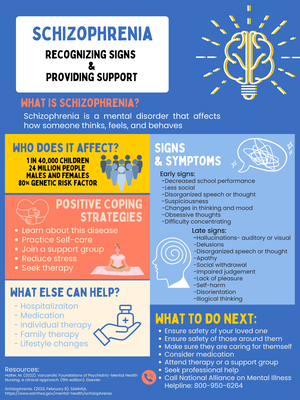- Information
- AI Chat
Was this document helpful?
Student Course Guide - Topic 1
Course: Behavioral Health Nursing (NSG-322)
77 Documents
Students shared 77 documents in this course
University: Grand Canyon University
Was this document helpful?

NSG 322: BEHAVIORAL HEALTH NURSING – Student Course Guide
TOPIC 1: Introduction to Behavioral Health Nursing & Therapeutic Communication with Behavioral Health Clients
TOPIC OBJECTIVES:
In this topic you will get a general view of behavioral health and the community. This topic is foundational and helps you to learn what
behavioral health is in order to understand behavioral health illness and personal application opportunities (e.g., coping, promotion of
well-being) for self and others. This topic builds on previously learned assessment and communication skills and concepts of
professional nursing. You will implement the nursing process and clinical judgment to select appropriate client interventions for persons
experiencing alterations in behavioral health.
Objectives:
1. Discuss the foundation of behavioral health nursing role, including major historical underpinnings and nursing theory.
2. Demonstrate the nurse’s role as a healthcare system guide and advocate for clients and families experiencing alterations in
behavioral health.
3. Discuss the behavioral health client’s rights related to admission and treatment, confidentiality, and the doctrine of least restrictive
alternative.
4. Recognize legal and ethical issues frequently encountered in behavioral health nursing, including tort law, mandatory reporting
standings and the duty to warn and protect.
5. Understand the registered nurse’s scope and role related to milieu management, seclusion and restraint, mandatory reporting
standings, and the duty to warn and protect.
6. Utilize effective communication techniques and clinical judgement to develop and maintain therapeutic relationships with clients
experiencing alterations in behavioral health.
7. Recognize the basic methodology, intended goals and methods of key psychotherapy treatments, including interpersonal therapy,
cognitive behavioral therapy, dialectical behavior therapy, behavior modification, aversion therapy, and exposure therapy.
TOPIC CONTENT – BOOK HEADINGS LEARNING ACTIVITIES
AND ASSESSMENTS
Foundations of Psychiatric -Mental Health Nursing Reading Assignment:
Foundations of Psychiatric-Mental






